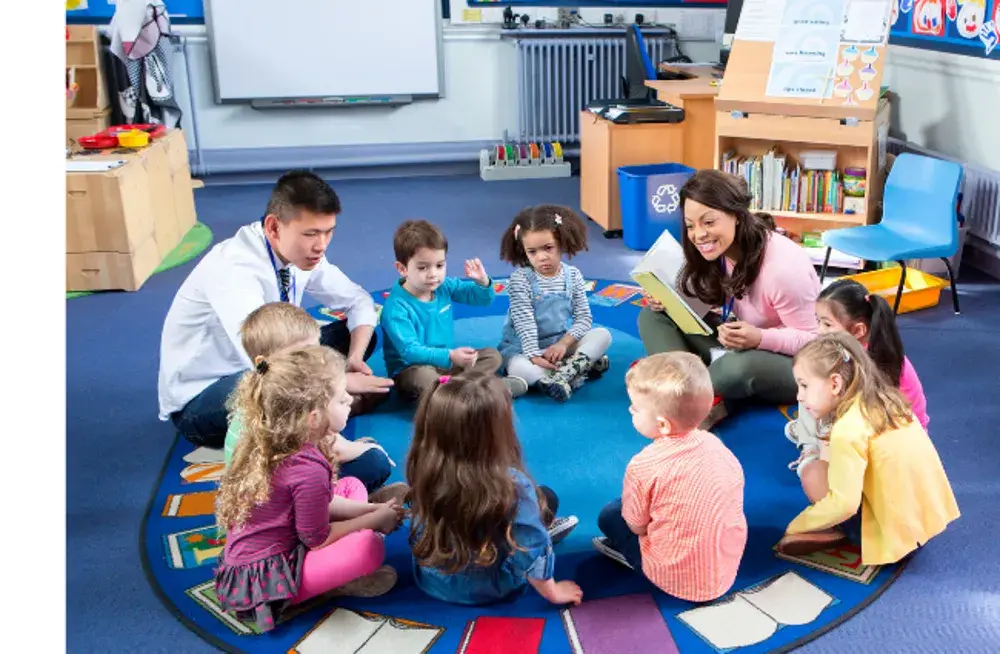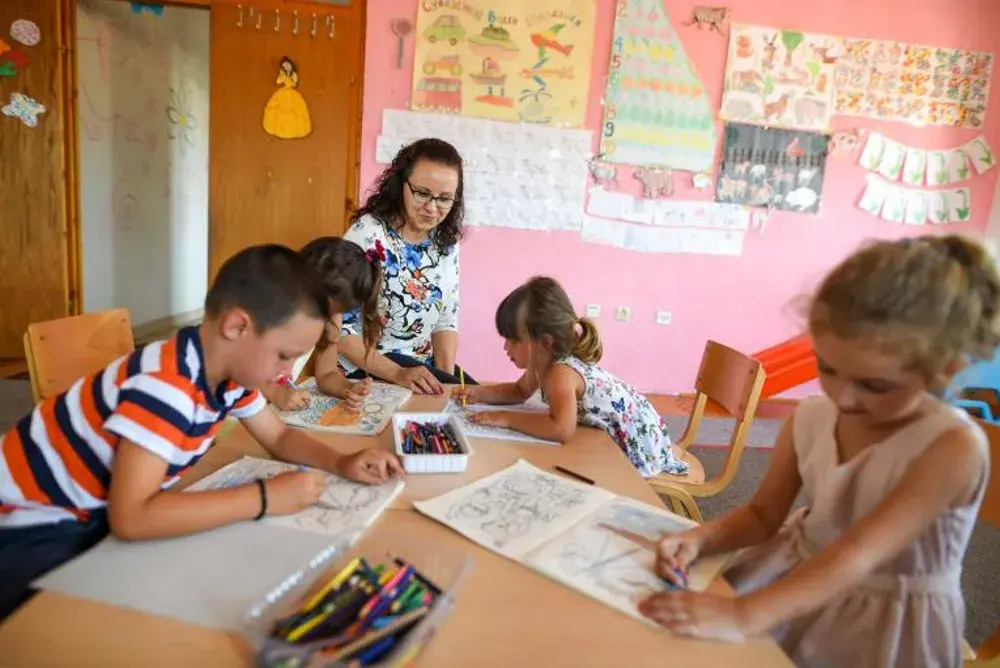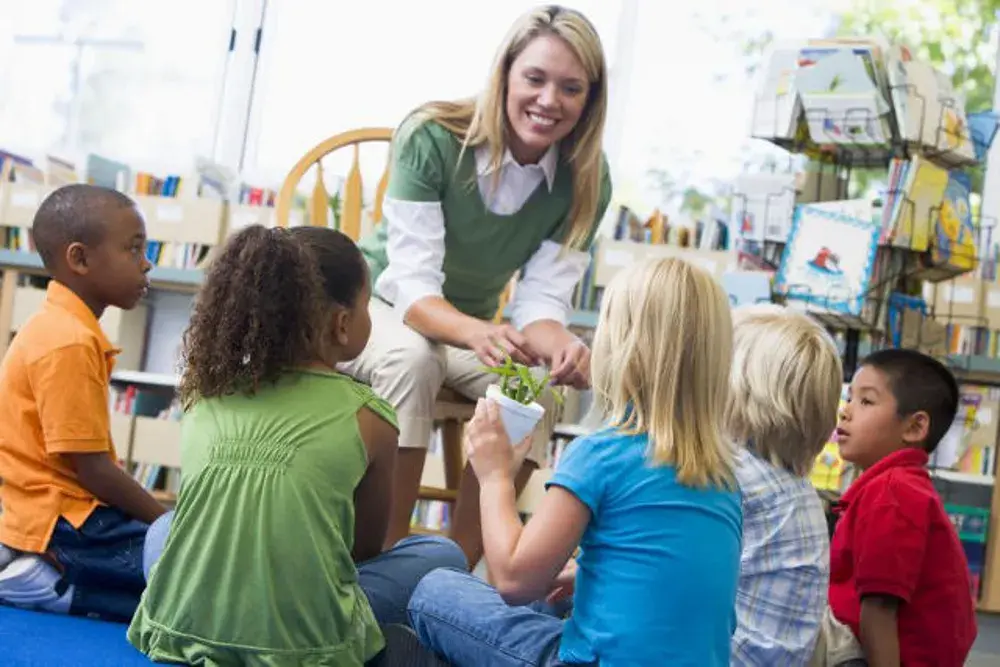Is Early Childhood Education a Good Course?

Source: flashcards
Is Early Childhood Education a Good Course?
Is Early Childhood Edu Good Course? is a subject that many prospective teachers and parents debate in today’s fast-paced educational environment
Vidhyanidhi Education Society- Ves a GOVT. REGD. institute offers an Early Childhood Care and Education Course that equips trainees with the skills and knowledge required to create a strong foundation for the future of the children they will guide.
Is Early Childhood Edu Good Course?
The answer to this is absolutely YES, it is a good career for all individuals, be it students who are pursuing further studies but want a part-time experience and income as well or for mothers who want to start or restart their career, this profession is suitable and accessible for anybody
Table of Content
- Early Education Courses Online
- Early Years Teaching Assistant Qualifications
- Early Childhood Course Fees
- Early Childhood Education Yearly Salary
- PGCE Early Years Distance Learning
- Early Childhood Development Modules
- Early Childcare Education Course in Mumbai
- What do Early Childhood Teachers Do?
- What does It Mean to Be an Early Childhood Professional?

Source: unicef
Early Education Courses Online
VES stands as a distinguished teacher training institute recognized by the government and backed by more than 20 years in the field. They now provide the ECCE Course online to cater to a broader audience.
Highlights of the Early Education Courses Online:
Universal Access
Whether you’re in India or elsewhere, VES brings education to your doorstep.
Self-paced learning
Study at a rhythm that suits you with pre-recorded lectures.
Course Completion in 12 Months
A set time frame ensures you remain on track.
Harmonize with Daily Life
Maintain a balance between studies and daily responsibilities.
Continuous Enrollment Options
Join the course at any time.
Expert Guidance
Avail of guidance from a dedicated Course Coordinator.
Practical Evaluation Method
Focus is on assignments, making evaluations more relevant and less stressful.
Internship Facilitation
VES assists with reference letters for necessary practical training.
Early Years Teaching Assistant Qualifications
For Early Years Teaching Assistant qualifications a 10+2 qualification or a Bachelor’s degree with 50% marks in any discipline is mandatory.
Early Childhood Course Fees
Depending on the quality of curriculum, teaching, and amenities, Early Childhood Course Fees may vary. VES maintains affordability while offering Diploma and PG diploma courses in early childhood education. To discuss fees, please reach out to +919869546913 / +919869866277.
Early Childhood Education Yearly Salary
Early Childhood Education Yearly Salary lies in the bracket of 15,000 to 27,000 K. The final amount can be influenced by various factors, notably the school’s location. City establishments tend to offer superior pay than rural ones, and International Schools stand out in terms of higher remuneration.

Source: thenewageparents
PGCE Early Years Distance Learning
The standout elements of Vidhyanidhi Education Society’s PGCE Early Years Distance Learning program include:
- A fit for those with time or location challenges.
- Curriculum that provides essential knowledge.
- Steady support from the course head.
- Economical fees.
- Seamless and ongoing admission opportunities.
- Evaluations done using assignments.
- Direct mail dispatch of course materials and the final certificate.
If you’re interested in our programs, contact us at +919869546913 / +919869866277.
To access our brochure Click Here.
Early Childhood Development Modules
In the dynamic landscape of early childhood education, the Vidhyanidhi Education Society (VES) stands out as a beacon of excellence. With its unwavering commitment to quality and innovation,
VES has been at the forefront of shaping future educators, offering unparalleled instruction in the field of Early Childhood Care and Education (ECCE).
Let’s have a glance at VES’s Early Childhood Development Modules.
Child Development and Growth
Under this segment, trainees gain a solid understanding of the stages of child development. From cognitive to physical milestones, the course emphasizes the holistic growth of a child, preparing educators to address the diverse needs of their students.
Principles and Theories of Early Education
It delves into the foundational principles governing early education. Trainees are introduced to the major theories and their practical applications, ensuring they are well-equipped to foster enriching learning environments.
Curriculum Planning and Development
An engaging curriculum is the backbone of effective early childhood education. Trainees learn the art and science of developing, evaluating, and revising curricula that cater to the diverse learning needs of children.
Teaching Methodologies and Strategies
From experiential learning to play-based methods, this module acquaints trainees with a plethora of teaching approaches. Educators learn to adapt and innovate, ensuring they can cater to varied learning styles.
Evaluation and Assessment
Assessment isn’t just about grading; it’s about understanding a child’s progress and needs. This section educates trainees on the tools and techniques for effective evaluation, helping educators promote holistic development.
Special Needs Education
This crucial topic introduces the principles of inclusive education, highlighting strategies for teaching children with diverse needs.
Health, Safety, and Nutrition
It is crucial to ensure pupils’ safety. This topic arms educators with knowledge about nutrition, health standards, and safety protocols, ensuring a secure learning environment.
Professional Development and Communication
The journey of an educator is one of constant growth. This section emphasizes the importance of professional development and equips trainees with communication skills pivotal in liaising with peers, parents, and communities.
Practicum and Internship
With internship options trainees get hands-on experience, allowing them to apply their learning in real-world settings and reflect on their experiences to foster continuous improvement.
Vidhyanidhi Education Society, through its meticulously crafted curriculum, ensures that every trainee emerges as a skilled, empathetic, and forward-thinking educator. The ECCE program is more than just a course; it’s a journey toward excellence in the world of early childhood education.
Early Childcare Education Course in Mumbai
Establishing itself as a premier Early Childcare Education Course in Mumbai, Vidhyanidhi Education Society offers the ECCEd Course in classroom settings, online, or through distance courses.
Students in on-site classes get to attend workshops on varied educational techniques. There’s also an internship possibility at the Borivali preschool, with options for those located in distant areas to pick a more local institution.

Source: sunshinedaycamp
What do Early Childhood Teachers Do?
Early childhood educators are vital to the growth of young children. They contribute to laying the groundwork for lifelong learning by giving kids a secure, supportive atmosphere where they may learn, explore, and develop.
Here are some of the main duties and projects that early childhood teachers do:
Develop Lesson Plans
Early childhood teachers design age-appropriate lesson plans that cover various areas of learning, such as language, math, science, art, and physical activity.
Teach Basic Skills
They introduce children to numbers, colors, shapes, letters, and basic social skills. They also provide opportunities for children to learn through play, exploration, and hands-on activities.
Observation and Assessment
They regularly observe children to assess their progress and identify any potential learning or behavioral challenges. This helps in tailoring instruction and interventions to individual needs.
If you’re interested in our programs, contact us at +919869546913 / +919869866277.
To access our brochure Click Here.
Promote Social Development
They foster a sense of community within the classroom and teach children important interpersonal skills like sharing, cooperating, and healthily expressing themselves.
Provide a Safe and Nurturing Environment
Safety is paramount. Teachers ensure the classroom and play areas are safe. They also create a nurturing environment where children feel loved, valued, and confident.
Communicate with Parents
Teachers maintain open communication with parents about their child’s progress, behavior, and any concerns. They may conduct parent-teacher conferences, send out newsletters, or provide daily reports.
Classroom Management
They use various techniques to manage classroom behavior and dynamics, ensuring every child gets the attention and guidance they need.
Continuous Learning
Early childhood educators often attend workshops, conferences, and other professional development opportunities to stay updated with the latest research and teaching strategies in their field.
Care for Children’s Basic Needs
Especially in settings with very young children, teachers may need to help with basic care tasks such as feeding, changing diapers, and ensuring children rest.
Facilitate Play
Play is essential in early childhood learning. Teachers design play activities that are both fun and educational, guiding children to explore and learn from their environment.
Promote Physical Development
They incorporate activities that help develop children’s fine and gross motor skills, such as drawing, cutting, jumping, or dancing.
Integrate Special Needs Children
Some early childhood teachers may work with children who have special needs. They adapt their teaching methods to meet the individual needs of these children, often collaborating with special education professionals.
What does It Mean to Be an Early Childhood Professional?
Working with young children throughout crucial developmental years, generally from birth to roughly age 8, is a part of being an early childhood professional. During this critical time, early childhood experts are extremely important in influencing children’s physical, emotional, cognitive, and social development.
The following are some essential facets of what it mean to be an early childhood professional:
Expertise in Child Development
Early childhood specialists are well-versed in theories and stages of child development. They can design activities and situations for kids that are developmentally appropriate since they are aware of what to anticipate at various ages and stages.
Creating a Safe and Nurturing Environment
For those working in this sector, fostering surroundings that are secure and encouraging learning and development is a top priority. This involves ensuring physical safety as well as fostering emotional security.
Planning and Implementing Curriculum
Early childhood specialists provide a curriculum that is dynamic, engaging, and in line with young children’s developmental requirements. Activities that foster cognitive abilities, linguistic development, creativity, and interpersonal connection are included in this.
Observation and Assessment
Professionals regularly monitor children’s growth to spot any developmental delays or areas that could require extra attention. This enables them to modify their strategy to meet the particular demands of each child.
Promoting Social and Emotional Development
The development of young children’s social and emotional abilities is the primary emphasis of professionals in this subject. They support kids in developing emotional regulation skills, empathy, and wholesome peer and adult interactions.
Effective Communication
Communication skills are crucial for early childhood professionals. To protect the welfare of the children in their care, they must successfully communicate with the children, their families, their coworkers, and other stakeholders.
Continuous Learning
Early childhood is a sector that is continually growing, and new research and best practices are always being developed.
Patience and Compassion
Working with children calls for patience and love. Early childhood educators are kind people who are sensitive to the needs and feelings of the kids in their charge.
Cultural Sensitivity
Early childhood professionals respect and celebrate the diversity of the children and families they serve. They create inclusive environments that honor different cultural backgrounds and traditions.
In conclusion, supporting and directing young children’s growth throughout their most formative years is a gratifying and demanding task for early childhood professionals. To lay the strongest foundation for children’s future learning and well-being, it takes a mix of knowledge, skills, empathy, and devotion.
Is Early Childhood Edu Good Course
“Empower young minds with Vidhyanidhi’s ECCE!”
If you’re interested in our programs, contact us at +919869546913 / +919869866277.
To access our brochure Click Here.
FAQs?
What do you mean by ECCE?
ECCE stands for Early Childhood Care and Education, emphasizing the holistic development of children from ages 0-8.
What is diploma in early childhood care and education syllabus?
The ECCE diploma covers child psychology, teaching methods, curriculum design, child health, classroom management, and developmental studies.
How much money do preschool teachers make?
Preschool teachers in India typically earn between ₹15,000 to ₹40,000/month, contingent on experience, location, and institution.
What are the qualifications for an ECDE teacher?
An ECDE teacher typically needs a diploma or degree in Early Childhood Education, practical training, and a passion for nurturing young minds.




